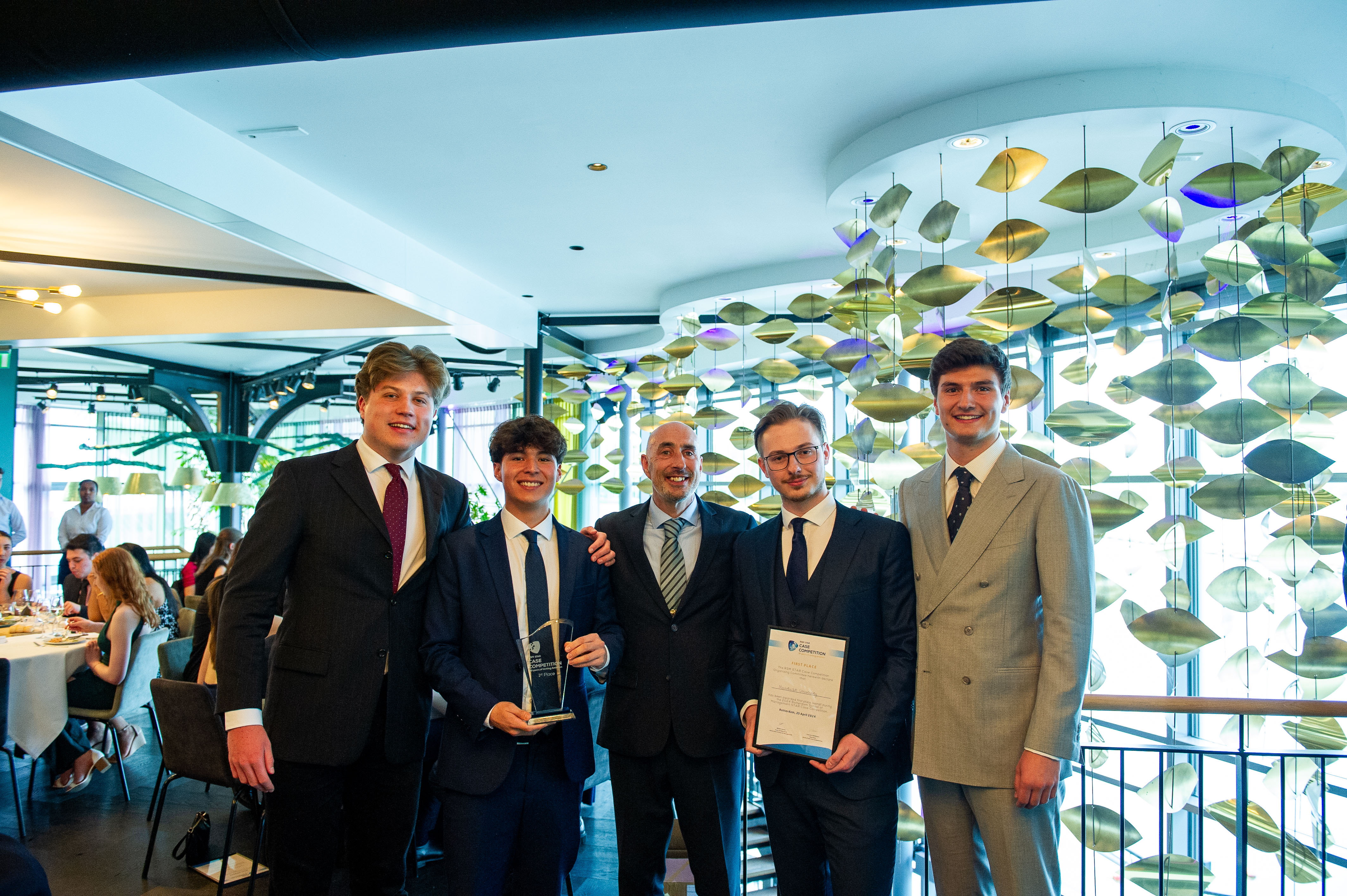A social and sustainable fiscal compact for Europe
On July 3rd 2023 a broad coalition of Dutch civil society organisations, labour unions and think tanks[1] launched a call for a social and sustainable European fiscal pact in the public debate centre Pakhuis de Zwijger in Amsterdam. The coalition argues that the current EU budget undermines social and sustainability goals and should be made more future-proof.
This year, politicians will decide on new European budget rules. If member states do not reach an agreement, the old rules risk coming back into force from next year onwards. The current rules had been set aside because of the Corona crisis. As of today, roughly half of the member states do not meet the standard that the budget deficit cannot exceed 3 per cent of GDP. Even more countries have debt ratio’s exceeding the prescribed 60%. As a result, severe austerity is looming.
This is at odds with the financial space countries need to be able to invest in well-trained workers, decent working conditions and robust welfare states. Consequentially, Europe’s social goals of good work, education and poverty reduction may be harder to reach. Also, the climate and nature goals will not be met because member states will not be able to make the necessary investments. A recent simulation[2] shows that the current European budget rules constrain most member states, including the Netherlands, in making the investments needed to meet the European Green Deal and thus meet global climate agreements.

Sara Murawski
Sustainable Finance Lab
Mark Sanders
Maastricht University/Sustainable Finance Lab
A first step in the right direction
The European Commission has tabled a legislative proposal to revise the European budget rules. The aim is to make debt sustainable while ensuring that countries can invest sufficiently in the resilience and sustainability of their economies. The Commission’s proposal contains good elements. For instance, the Commission proposes country-specific debt reduction paths that consider the state of the economy and national reform and investment plans. The 1/20th rule, under which public debt above 60% must be reduced in 20 years, will be abandoned and countries can get extra time for adjustments if they invest in European common priorities, such as the European Green Deal.
But more is needed.
The Commission’s plans are a step in the right direction, but insufficient to reduce the differences between European economies and make them sustainable sufficiently fast. Upward social convergence will not be achieved in this way and countries risk growing even further apart. For climate and nature goals there is the risk of insufficient funding. Compliance with European budget targets should not be at the expense of the realisation of social objectives and the protection of citizens’ and workers’ rights, including trade union rights. Social goals should therefore be anchored as a starting point of all European fiscal policy, to fulfil the European promise of upward social convergence.
Ecological transitions are also necessary for sustainable future public finances. Those who think transitions are expensive do not know the damages that climate change and biodiversity loss threaten to cause. We must not pass this ecological debt on to future generations. They will have to deal with the economic damage of climate change, as well as social and natural damage. So, in our decisions today we should give weight to the interests of future generations. But European fiscal policy must also make this desired sustainable future just. Without justice, it will also be impossible to achieve the necessary transition. We borrowed the planet from younger generations, and they have the right to inherit a liveable planet. But workers today need to make the transition and are affected by climate policies. It is therefore essential that they have a say in the transition and the impact it will have on their work. Support of all citizens is necessary, and we need a fair transition in which the big polluters pay their fair share.
A social and sustainable fiscal compact for Europe
The Maastricht Treaty, on which the current budget rules are based, also sets important and ambitious social and green goals. The EU aims to achieve sustainable growth while respecting the environment, reducing disparities between countries, a high level of employment and social protection, improving living standards and solidarity between countries. All member states need sufficient budgetary space to invest in that future. To this end we make the following proposals for a social and sustainable fiscal pact for Europe:
- Country-specific spending rules with sufficient room for social, green and productive investments. Sustainable public finances require that countries are able to make investments that pay off, including investments in education, quality of work, an equitable welfare state and greening the economy. Country-specific spending rules should provide sufficient room for this.
- Strengthen governance and democratic accountability. Better compliance with economic governance rules and guidelines is a prerequisite for increased trust among member states and for steps towards further integration. Ensure sound safeguards and compliance with fiscal rules through establishing independent oversight, having mechanisms and procedures in place to ensure that the rules are followed and that there are consequences for not complying with them. Transparency and accountability during budgetary processes is essential. Social partners and civil society at all levels are better involved.
- Green the Macroeconomic Imbalances Procedure (MEOP). Climate and other environmental issues will have a major macroeconomic impact. This could be the case if the EU has a successful transition, the so-called transition risks. That will certainly be the case without a successful transition causing climate change and biodiversity loss to exceed critical limits. Therefore, expand the MEOP to include climate- and environment-related indicators.
- Also create a social imbalances procedure. To prevent negative social developments around employment and living conditions it is important to also identify social imbalances early. To this end, add a social convergence framework to the European Semester for this purpose. Member States should then demonstrate what measures they are taking to achieve real progress in achieving the European Pillar of Social Rights.
- Introduce EU transition funds and set requirements for public subsidies and public procurement. The European Recovery Fund model should be replicated, in the form of jointly funded temporary funds to stimulate and finance green and productive reforms and investments. The sovereignty fund announced by the Commission for the greening of European industry could contribute to this. This must then be accessible to all Member States and meet social and environmental conditions, such as the Just Transition Guidelines of the International Labour Organisation.
Only with a social and sustainable fiscal pact can Europe and the member states act powerfully and decisively on the challenges we face together. It is time to really make the Maastricht Treaty come to life!
Sara Murawski is program leader “Changing ‘Fiscal Rules’ and reforming the EU fiscal framework” at Sustainable Finance Lab
Mark Sanders is Professor of International Economics at Maastricht University and Member of Sustainable Finance Lab
[1] Jonge Klimaatbeweging, FNV, CNV, NVDE, Milieudefensie, Natuur & Milieu,
Waddenvereniging, Both ENDS, Our New Economy, Rethinking Economics, Sustainable Finance Lab
[2] Van den Noord. P. (2023). A targeted golden rule for public investments? A comparative analysis of possible accounting methods in the context of the review of the SGP. https://www.europarl.europa.eu/RegData/etudes/STUD/2023/733740/IPOL_STU(2023)733740_EN.pdf
Also read
-
Maastricht Sustainability Institute (MSI) of Maastricht University School of Business and Economics (SBE) has successfully applied for funding in the ‘Driving Urban Transitions’ program of NWO/ JPI Urban Europe. Three new transdisciplinary projects with international partners have recently started...
-
SBE took first place in the Rotterdam School of Management Star Case Competition (RSMCC). The competition welcomed 16 top-level international business teams of four students, who were tasked with tackling two real-life business cases.
-
Higher air pollution increases the likelihood of people voting for opposition parties rather than ruling parties. This is the major finding of research by Nico Pestel, a scientist at the Research Centre for Education & Labour Market (ROA) at the Maastricht School of Business and Economics.


